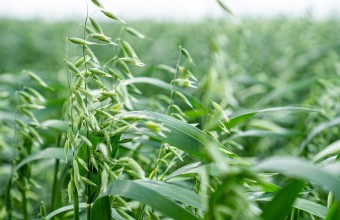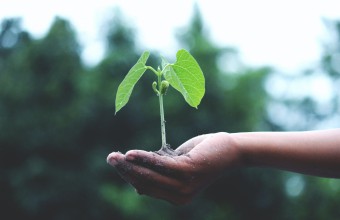Brazilian credit cooperativism is one of the major supporters in building a more responsible financial ecosystem. With 15.5 million members, the country’s over 700 credit unions play an important role in financial inclusion, financing sustainable projects, and community development.
The segment is a significant force within the financial services in Brazil. According to the Anuário do Cooperativismo Brasileiro (in English, Brazilian Cooperativism Yearbook), produced by the Organization of Brazilian Cooperatives (OCB), the sector has accumulated US$134 billion in assets and generated US$2.6 billion in surplus in 2022.
Therefore, Brazilian credit cooperativism is expanding and growing, while maintaining a close connection with communities. In this context, from regional singular cooperatives to large national cooperative systems, initiatives are being developed to care for the environment and people.
Green Finance
With more than 7 million cooperative members, Sicredi plays a pioneering role in the development of green finance in the country. One of the most significant examples took place in 2022 when Sicredi issued the first public sustainability bond in Brazil.
The initiative raised US$159.6 billion, which was converted into credit to finance sustainability-aligned projects focused on renewable energy, support for small local impact businesses, and small to medium enterprises led by women. The results are already tangible: “In the renewable energy operation, the emission of 4,900 tons of greenhouse gases per year was avoided. In addition, in operations focused on social eligibility, we contributed to sustaining more than 80,000 jobs,” explains João Pedro Segabinazzi Stephanou, manager of structured operations and sustainable finance at Sicredi.
Sicredi is also at the forefront of other sustainable financial initiatives. For example, Sicredi is currently the second-largest rural credit financing institution in Brazil, with a focus on supporting small farmers seeking to improve working conditions.
In this scenario, the cooperative has developed a multidisciplinary plan to promote good conditions for small producers to invest in materials, systems, and equipment, prioritizing sustainable production. The initiative also employs technologies to assess the sustainability of supported projects and to map preservation areas.
Another financing action aimed at supporting changes that benefit the environment is carried out by Sicoob Aracoop, which operates in the states of Minas Gerais and Pará. In its sustainable investment portfolio, a noteworthy investment of US$ 653,955 stands out for the construction of the Photovoltaic Energy Plant of the Pirapora Project Users Association (AUPPI is the acronym in Portuguese).
“AUPPI was looking for a project that would meet the economic pillars for its members and a commitment to the environment. Through AUPPI’s enduring relationship with Sicoob Aracoop, and following the principles of supporting projects that align with sustainability and economic growth in the region, Sicoob Aracoop immediately addressed the project’s demand,” says Euder Freitas, regional business manager at Sicoob Aracoop, to Cooperação Ambiental.
Sustainable Production
Brazilian credit cooperatives have a close relationship with the agricultural and livestock production sector. Thus, the sector invests in the development of a more productive, social, and sustainable countryside. The impact can be significant, as seen in the case of Sicoob Credip and coffee producers in Rondônia.
Amidst a scenario of declining local coffee production and increased deforestation, the cooperative, in partnership with Sebrae, Embrapa, and the local coffee producers’ association, invested in science to provide new directions for local production. The construction of a unique genetic base gave rise to the Amazonian Robustas specialty coffees, already awarded for their quality.
“Adopting new productive technologies that add productivity and income, bringing to the preservation issue also the dimension of the Amazonian inhabitants and their dignity, is the only way Sicoob has seen to support the fight against deforestation. Therefore, we have come to understand that supporting small coffee farmers in their technological transition means bringing dignity and forest preservation,” says Oberdan Pandolfi Ermita, chairman of the board of directors of Sicoob Credip.
Strengthening family farming is central to making agricultural production more sustainable. Sicredi works towards this goal. In 2022 alone, Sicredi provided over US$2 billion to family farming through Pronaf (National Program for Strengthening Family Agriculture), allowing for the modernization of family rural properties.
In addition to Pronaf, the cooperative also operates a series of other products focused on the green economy. For example: Renovagro, FCO, FNO, lines for renewable energy, among others.
“Due to our cooperative nature, funds raised in one place are reinvested in credit to other members in the same location, creating a virtuous cycle that stimulates investment in the cooperative, the inclusion of a greater number of people in the financial system, and the strengthening of our associates’ businesses,” explain Daniela dos Santos da Silva and Rebecca de Albuquerque Grandmaison, agribusiness strategy specialists at Sicredi.
Environmental Protection
The proximity to local ecosystems allows singular cooperatives to have a precise approach to environmental preservation initiatives with a positive impact on communities. This is how Cresol Minas Gerais developed a project to recover and revitalize springs in the city of Espera Feliz, in partnership with the Union of Family Agriculture Workers of the same municipality.
The initiative worked to protect and revitalize springs on 21 properties belonging to farmers in the communities of the Itabapoana River Basin, positively affecting over 100 families.
The name Sicredi Grandes Lagos is not a coincidence. The cooperative operates in the state of Paraná, in regions surrounded by lakes and reservoirs, and on the coast of São Paulo, bathed by the sea. Therefore, it dedicated itself to the protection of water resources and maritime ecosystems.
From this commitment arose the Springs Protection Project, with 17 actions that covered various cities in Paraná. The goal is to carry out more than 50 spring protection actions by 2030. Additionally, the cooperative released fingerlings in the flooded area of Rio Bonito do Iguaçu, also in Paraná, to preserve life in the waters and the health of the lake.
In the coastal cities of São Paulo, the Pé na Areia (in English, “Feet on the Sand”) project conducted actions to clean the sand and raise awareness about pollution. “These actions are connected to the cooperative’s strategies to develop the community,” says Maria Nivete Presa, cooperative development advisor at Sicredi Grandes Lagos.
The transformation is not only in the name of Cresol Transformação, active in the states of Santa Catarina and Minas Gerais. In 2023, the cooperative led the Action for Cooperation for the Environment, an initiative to promote awareness about the environment among both employees and communities.
The initiative carried out a series of actions, such as the delivery and planting of seedlings, ecological walks, and environmental education workshops, among other activities. The project planning took into account the specific needs of each locality where the cooperative is present.
Community Development
Social and economic development also align with the role of credit unions. Actions that combine environmental responsibility and social care bring cooperatives even closer to their communities. An example is the “Batalhão do Bem” (Battalion for Good) from Unicred Ponto Capital, which puts the circular economy in the service of environmental preservation and income generation.
The “Batalhão do Bem,” done in partnership with the Unicred Institute, reuses textile waste from uniforms and clothing discarded by military units in the Santa Maria region, in the state of Rio Grande do Sul. The material can be reused after a restoration process or serve as raw material for customization and transformation into products that can be marketed by the students of the courses offered by the project.
“The project’s objectives are based on encouraging the circular economy, training and professionalization of artisans, donating items in good condition to recyclers, and positively impacting the benefiting community in line with cooperative principles,” explains Wellinton Henrique Azambuja Martins, executive governance advisor at Unicred Ponto Capital.
The Cresol System, in turn, is on a journey to build the future through the engagement of new generations. In this sense, the main project is “Juventude Conectada” (Connected Youth), conceived during the pandemic to engage young people with the cooperative through a 14-week online learning journey covering cooperative, financial, and professional education.
“Through the project, young people get to know our work and the cooperative way of being, which aligns with many of their aspirations, and thus, they become new cooperative members. This strengthens the family’s connection with the cooperative,” concludes Helem Baldissera, relationship analyst at Cresol.





